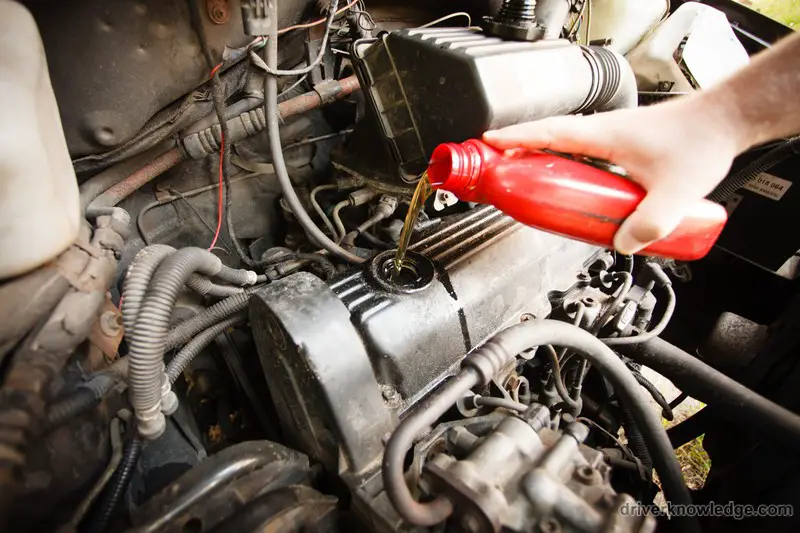Your car is not just a luxury, but an essential component of your life. It allows you to stay mobile and gives you the freedom to go anywhere you want. Hence, it is important your car is always in a fantastic and suitable working condition. It goes without saying that it is the car engine that is the most important part of the car. If it runs as it should, your car will give you outstanding mileage, be reliable and offer the performance you expect. The engine needs oil to function efficiently.
The Engine Oil Component
Engine oil helps your car run smoothly and also ensures it gives you the power you need. The oil offers many benefits to your hard working engine besides increasing its lifespan. The engine oil of today is a complex mixture of oils and additives that perform a variety of tasks.
Engine oil helps lubricate the moving parts in the engine and reduces friction so reduce the power it wastes. The oil that is available nowadays has vastly improved over the years and is a far cry from what was available a decade or so ago. The modern-day engines too have evolved and many of these changes define the maintenance procedures they require and how often they need maintenance.

New Technology
Did you know it is not mandatory to change the engine oil every 3,000 miles? If you drive your car at proper speeds and on a normal terrain, the oil in the engine will last the mileage mentioned in your owner’s manual. It will perform the tasks of lubrication and reducing engine wear. The oil also regulates the temperature of the engine and helps prevent deposits from forming in the engine. Changing oil at the mileage specified by the auto manufacturer is adequate to run your vehicle smoothly and optimally.
It does not have to be 3,000 miles though. You can use the same oil for 6,000 miles or even more.
Change in the Thought Process
Auto manufacturers have now upped the distance you can travel before requiring an oil change. The 3,000-mile myth is now busted and majority of the manufacturers now recommends a change after 7,500 miles; while some even recommend an oil change after 10,000 miles. A few automobile manufacturers recommend oil change at 15,000 depending on where you live and how you drive.
If you do not go off-roading or to the drag strip on weekends, you don’t need to change your oil earlier than advised.
You may think you are doing your vehicle a favor by changing the oil often. However, that is not the case. You should change the oil as specified by the manufacturer unless you use your vehicle rigorously. This will ensure you can save money and use it for something more important. There is no reason to waste a perfectly good product.
The complicated engines of today are one of the reasons vehicle owners are scared into changing the oil often by unscrupulous car dealerships and repair workshops who love to work on cars when nothing actually needs to be done. When they look under the hood, all they can see is a covered engine with just the oil cap visible. It can be an ominous sight for a car owner who does not know what lies under the cover and hence, is easily swayed by what he perceives to be an expert in engine repair – the car technician.
Do You really need an Oil Change?
Another serious problem with unnecessary oil change is the waste generated. The environment suffers when large amounts of oil are dumped or burned. You may feel an oil change will give your vehicle’s engine added benefit, but in reality it will not be a magical panacea for your car. Many car owners are under the misconception that engine oil will cure all that ails their vehicle. However, remember it is not the ultimate source to boost the lifespan of your car’s engine.
Spin Off for the Dealer
The 3,000-mile oil change requirement is a marketing tactic that dealerships use to get you to the service bay on a regular basis. It helps in boosting their revenues. When you come for an oil change, you may even end up performing some uncritical repairs.
You may also believe when you get the engine oil changed, you will immediately notice the difference. This may be so if you are a trained car technician, who can differentiate the engine sounds. Typically, unless the oil is completely burned and has outlived its life, a driver will not be able to differentiate between the before and after oil change sounds of the engine. You will only be able to truly feel the difference when your engine oil has burned completely. Burned out engine oil can change the emissions of your vehicle, but you need to have trained technician and equipment to determine this for you.
Though you value your car and need to always maintain it in cogent and appropriate working condition, refer to your owner’s manual to check the maintenance schedule, including engine oil change. This way, you will not be spending money, time, and effort unnecessarily and will only turn the ignition (pun intended) for maintenance that your car really requires.
